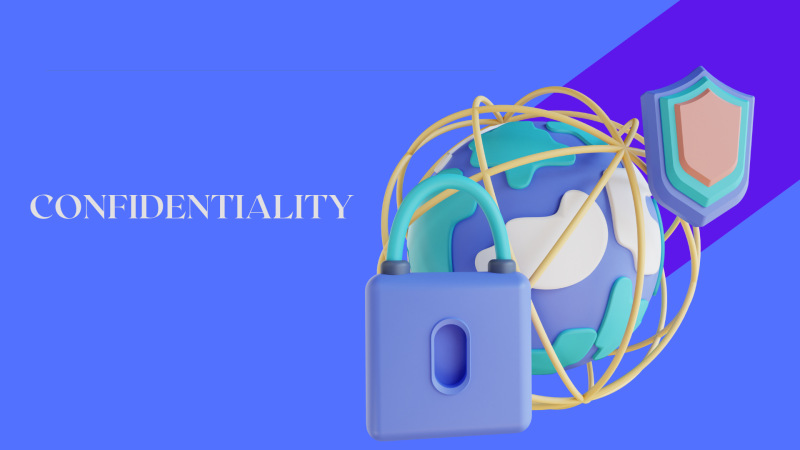
Introduction
Confidentiality is a cornerstone of ethical healthcare practices, playing a pivotal role in establishing trust between healthcare providers and patients. In the dynamic and evolving landscape of healthcare, maintaining the privacy and security of patient information is not only a legal obligation but also a fundamental ethical imperative. In this blog post, we'll explore the importance of confidentiality in healthcare, discuss strategies to assure confidentiality in the workplace, delve into the realm of information governance, and underscore the critical need to protect patient data.
The Importance of Confidentiality in Healthcare
Confidentiality is integral to the healthcare profession, as it forms the basis of a trusting relationship between healthcare providers and patients. Patients often disclose sensitive information about their health, lifestyle, and personal circumstances, trusting that this information will be safeguarded. Several key reasons underscore the significance of confidentiality in healthcare:
1. Trust and Patient-Centered Care: Maintaining confidentiality builds trust between healthcare professionals and their patients. When patients feel assured that their personal information is secure, they are more likely to be open and honest about their health issues, enabling healthcare providers to deliver more effective and personalized care.
2. Legal and Ethical Obligations: Healthcare professionals are bound by legal and ethical obligations to protect patient confidentiality. Breaching confidentiality not only violates these obligations but can also result in legal consequences, eroding the trust that is essential for effective healthcare delivery.
3. Privacy as a Fundamental Right: Patients have a fundamental right to privacy concerning their health information. Respecting and protecting this right is not only ethically imperative but also helps uphold the dignity and autonomy of individuals seeking medical care.
Assuring Confidentiality in the Workplace
Ensuring confidentiality in the healthcare workplace involves implementing robust policies, procedures, and technological safeguards. Here are some strategies to maintain confidentiality:
1. Education and Training: Regularly train healthcare staff on the importance of confidentiality, the legal and ethical obligations associated with it, and the specific policies and procedures in place to protect patient information.
2. Access Controls: Implement strict access controls to limit access to patient information only to authorized personnel. Use electronic systems that require unique login credentials and track user activity to monitor and control access.
3. Encryption and Secure Communication: Utilize encryption technologies to secure electronic communication and patient records. Ensure that any electronic transmission of patient information, whether within the organization or with external parties, is secure.
4. Physical Security Measures: Implement physical security measures to protect paper records, such as locked cabinets and restricted access to storage areas. Dispose of sensitive information securely through shredding or other approved methods.
Information Governance in Healthcare
Information governance refers to the framework of policies, processes, and controls that ensure information is managed effectively, efficiently, and in compliance with legal and regulatory requirements. In healthcare, information governance plays a crucial role in maintaining the confidentiality and integrity of patient data. Key components of information governance include:
1. Data Management: Establish protocols for the collection, storage, and disposal of patient information. Regularly review and update data management policies to align with evolving technologies and regulatory requirements.
2. Risk Management: Conduct regular risk assessments to identify potential vulnerabilities in the confidentiality of patient information. Develop and implement strategies to mitigate these risks and respond effectively in the event of a breach.
3. Compliance Monitoring: Stay abreast of evolving healthcare regulations and ensure that organisational practices comply with these standards. Regularly audit and monitor adherence to information governance policies.
Why Patient Data is Important to Protect
Patient data is a valuable asset in healthcare, providing insights into medical history, treatment plans, and outcomes. The protection of patient data is crucial for several reasons:
1. Medical Decision-Making: Accurate and comprehensive patient data is essential for informed medical decision-making. Healthcare providers rely on this information to diagnose conditions, prescribe treatments, and manage ongoing care.
2. Privacy and Dignity: Patients have a right to privacy and dignity regarding their health information. Protecting patient data ensures that individuals are treated with respect and that their personal information remains confidential.
3. Preventing Fraud and Identity Theft: Patient data, if mishandled, can be a target for fraudulent activities and identity theft. Robust security measures and confidentiality practices help prevent unauthorized access and misuse of sensitive information.
Conclusion
Confidentiality is a cornerstone of ethical healthcare practices, playing a vital role in establishing and maintaining trust between healthcare providers and patients. By prioritizing confidentiality through education, technology, and stringent policies, healthcare organizations can create a secure environment that respects the privacy and dignity of individuals seeking medical care. Information governance serves as a crucial framework for managing patient data effectively, ensuring compliance with regulations and mitigating potential risks. Ultimately, the protection of patient data is not just a legal requirement but a moral obligation that underpins the delivery of quality and patient-centered healthcare.
Add comment
Comments